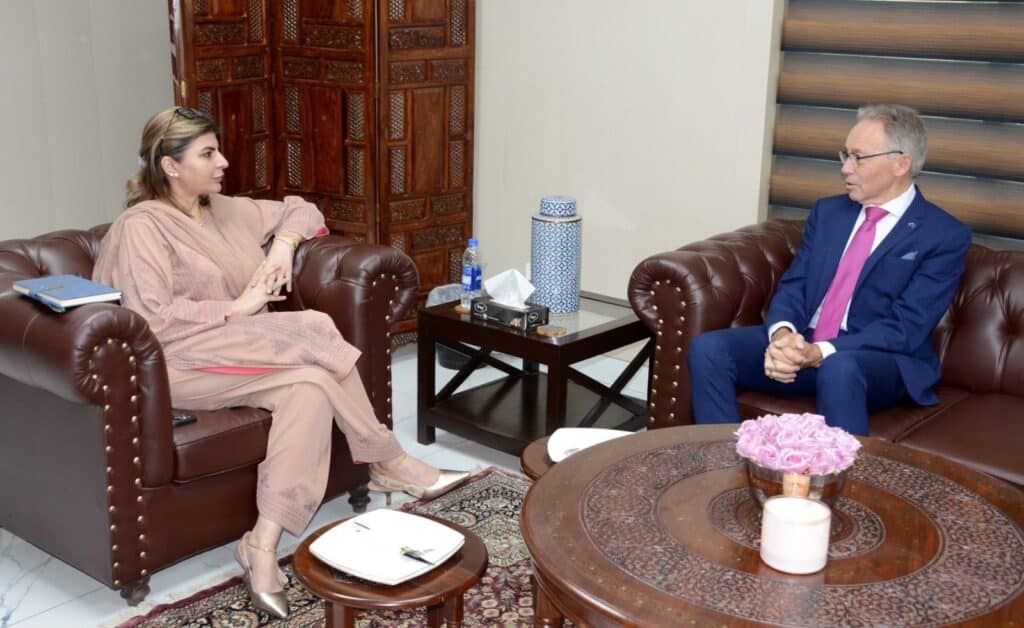ISLAMABAD: Australia’s High Commissioner to Pakistan, Neil Hawkins, reaffirmed his country’s commitment to supporting human rights initiatives, including reducing crimes subject to the death penalty, during a meeting with Senator Samina Mumtaz Zehri on Thursday.
According to a Senate Secretariat statement, the High Commissioner emphasised Australia’s focus on mental health awareness, reducing offences carrying the death penalty, and promoting tolerance through interfaith dialogue.
It is worth noting that on July 18 this year, the Senate passed the Criminal Laws (Amendment) Bill, 2025, which abolishes the death penalty for offences such as “assault or criminal force to women and stripping her of her clothes” and “harbouring a hijacker.” The bill replaces the death penalty with life imprisonment in such cases.
Senator Zehri, a Balochistan Awami Party (BAP) legislator and Chairperson of the Senate’s Functional Committee on Human Rights, opposed the bill during the Senate session. She argued that cases involving serious assault on women should carry the death penalty and called for more stringent laws and their strict implementation. The National Assembly had already passed the bill on August 6.
During her meeting with the Australian envoy, Senator Zehri highlighted Balochistan’s challenges, including weak communication facilities, limited job opportunities, and the need for stronger governance mechanisms to address public frustration. She stressed that sustainable stability depends not only on security but also on investment in human development—particularly in education, health, women’s empowerment, and interfaith understanding.
High Commissioner Hawkins shared observations from his recent visits to Balochistan, noting that his interactions with students, especially young women, reflected the region’s strong potential. He underlined the importance of equipping universities with specialized training in mining and related sectors to create meaningful employment for local communities. He also underscored the role of interfaith dialogue in fostering inclusive and tolerant societies.
Also Read: Balochistan seeks priority in upcoming NFC Award, says governor
The statement concluded that both sides affirmed peace and stability in Balochistan depend on inclusive development, expanded economic opportunities, interfaith harmony, and protection of fundamental rights. The meeting ended with a reaffirmation of commitment to strengthening cooperation in pursuit of these shared objectives.





